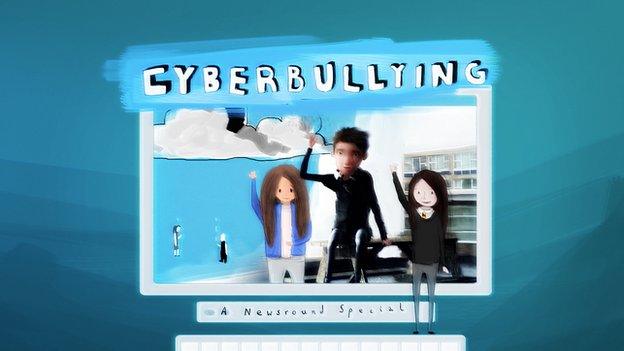Anti-Bullying Week: What's your 'One Kind Word'?
- Published
- comments
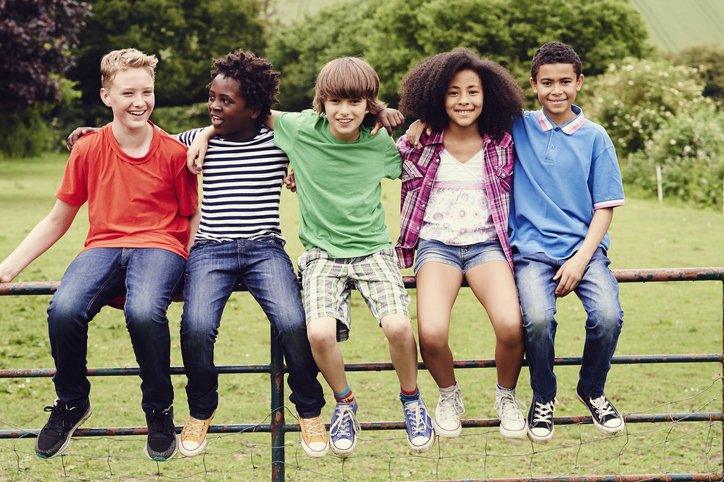
Lots of us value the importance of kindness, whether that's us being kind to people ourselves or receiving kindness from others.
A survey carried out by the charity Kidscape revealed three-quarters of children (74%) say pupils in school are kind to them and over 94% say they're kind to others.
However, the findings also suggest some children don't experience kindness in the same way.
Disabled children and those with additional needs are three times more likely to say pupils in school are not kind to them (9%) compared to non-disabled students (3%).
If you are looking for more information and advice on what you can do if you've either experienced bullying yourself or you know someone who has, why not head to
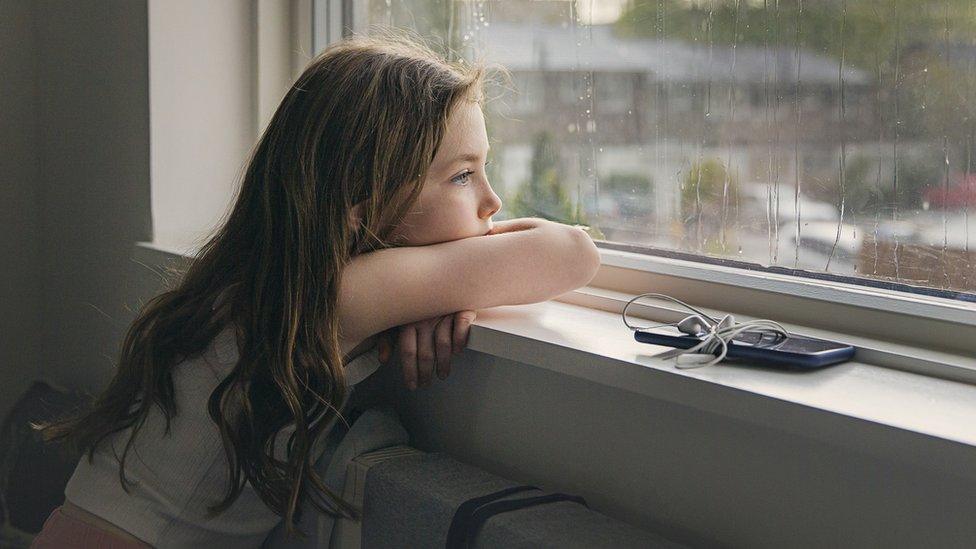
"Our survey showed that kindness matters to children and that on the whole they have a positive experience of school life," said Lauren Seager-Smith, chief executive of Kidscape.
"The challenge lies in understanding why a sizeable minority continue to experience unkindness and bullying, particularly disabled children and those with additional needs, and we urgently need to create an environment where all children feel that they belong."
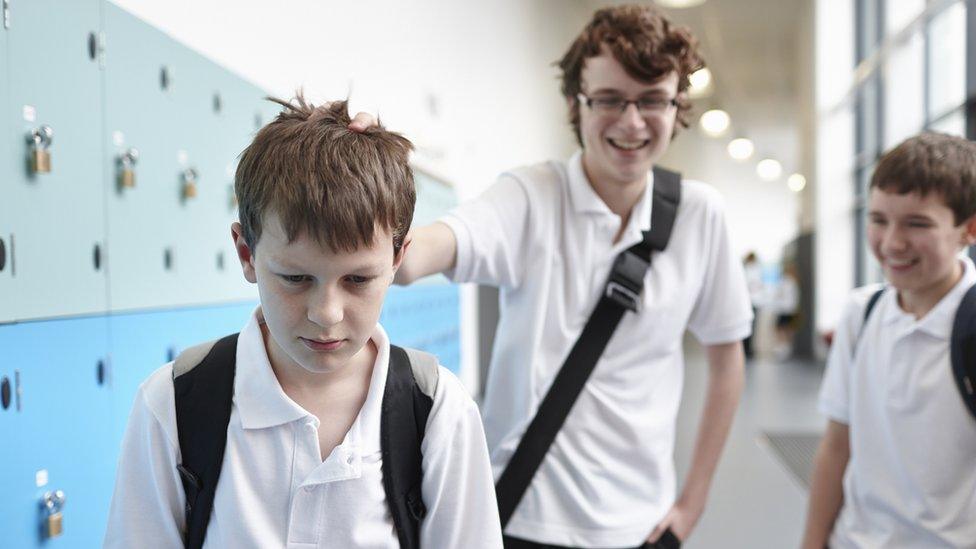
The results from another questionnaire completed by nearly 15,000 pupils show a significant number of children are suffering frequently from bullying.
One in five (21%) pupils in England reported being bullied a lot or always, with 1 in 22 (4.6%) - which is the equivalent of one in every classroom - saying they are frequently hit, kicked or pushed by other children.
Other findings from the survey, published by the Anti-Bullying Alliance (ABA), showed that:
•1 in 12 (8.3%) children say that other pupils frequently tease them
•1 in 14 (7.3%) pupils say they are frequently called hurtful names by other children
•1 in 16 (6.3%) children report being frequently picked on by other pupils because they are 'a bit different'
It also suggests rates of bullying have increased for children with special educational needs, disabilities and those who receive free school meals.
Bullying is when someone, or a group of people, repeatedly and deliberately hurt someone else or a group of people.
It can come in many different forms.
Bullying can be physical (for example, pushing somebody around), emotional (for example, leaving somebody out) or verbal (such as saying nasty things to or about someone).
When bullying takes place online - for example, via social media or video games - it is called cyberbullying. This form of bullying has become more common, as more young people have mobile phones and computers than they used to.
Anti-Bullying Week: Why do some people become bullies?
Sadly, there is evidence to show that severe and frequent bullying can have a long-lasting impact on children's mental wellbeing and development.
"Our research has shown that a significant proportion of children are frequently on the receiving end of bullying behaviours. It doesn't have to be this way," said Martha Evans who is the director of the Anti-Bullying Alliance.
"If we are alert to hurtful behaviour, encourage upstanders, and role model kindness and respect - even when we don't always agree, we can break down barriers and brighten the lives of the people around us."
WATCH: How to recognise bullying
Anti-Bullying Week, which is organised by the ABA, aims to highlight ways in which we can tackle bullying and help stop it once and for all. The theme for 2021 is 'One Kind Word'.
"This year we want to spread the message that one kind word can lead to another and together we can help stop bullying," said CBeebies presenter Andy Day who is also an ABA patron.
The ABA also wants children to wear odd socks on Monday 15 November to show their support.
"Pulling on a couple of odd socks might not seem like much, but it's an opportunity to encourage people to express themselves and celebrate their individuality in their own unique way!" Andy said.
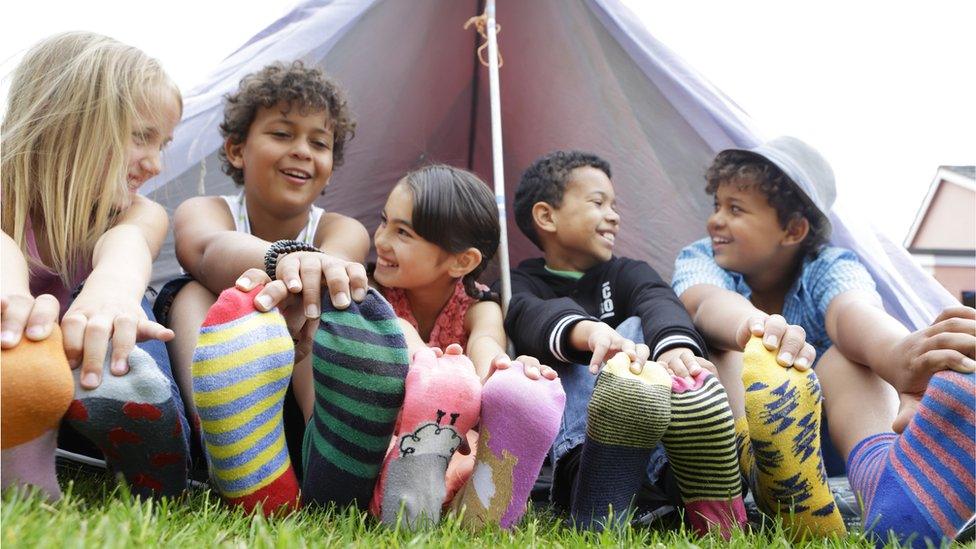
The Anti-Bullying Alliance wants children to wear odd socks on Monday 15 November to show their support for Anti-Bullying Week
Remember, if you're experiencing bullying, it's important not to blame yourself. Try and speak to someone you trust about it and if you need urgent help, there are organisations out there that can help like Childline (0800 1111).
As part of Anti-Bullying Week, we want to hear from you. What would your one kind word or message be this week? Let us know in the comments!
- Published17 November 2020
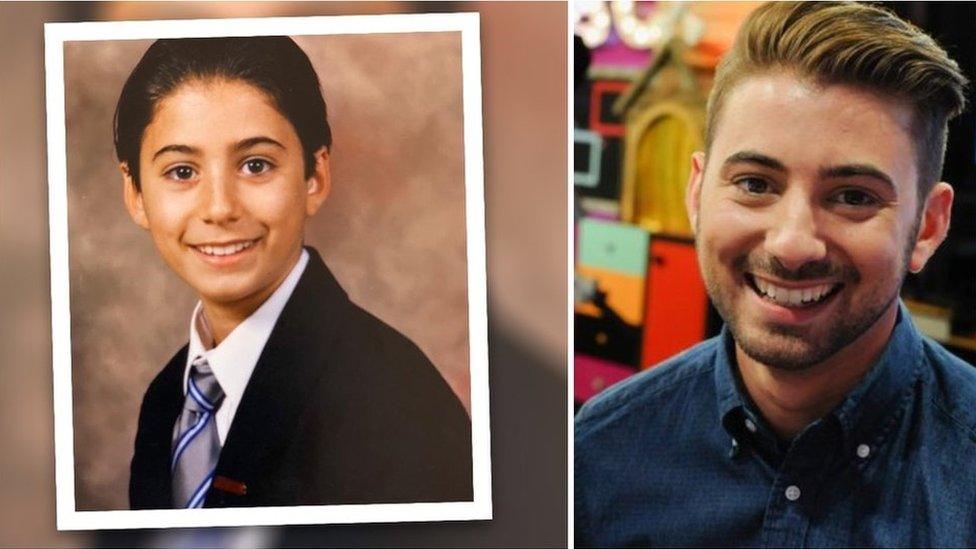
- Published6 November 2023
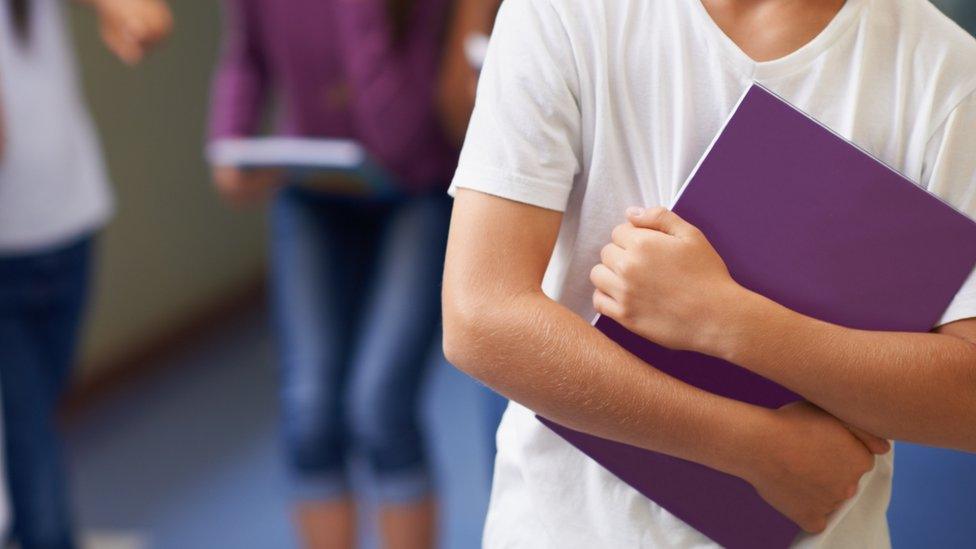
- Published28 March 2014
